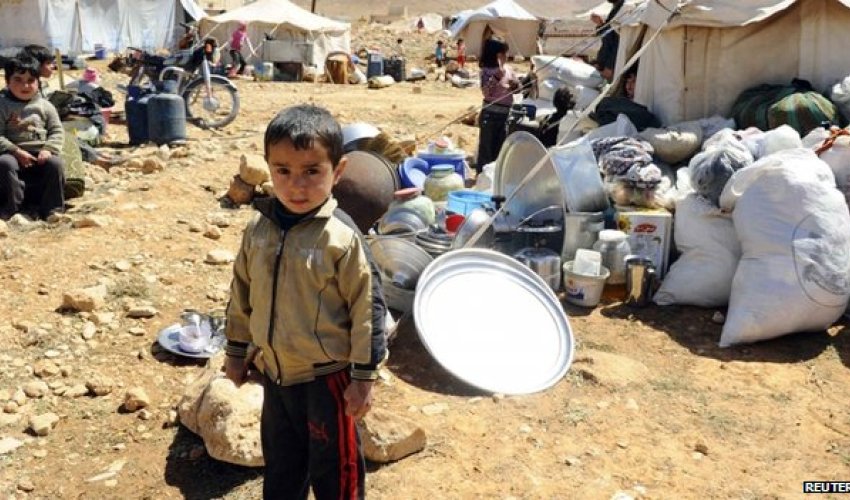'Worst year for Syrian civilians as UN resolutions fail'

The UN Security Council has failed to implement resolutions to protect and help civilians in Syria, a report by a group of 21 aid agencies says.
The agencies - including Save the Children and Oxfam - say it has been the "worst year" for civilians as the conflict enters its fifth year.
Another humanitarian report says 83% of the lights in Syria have gone out since the conflict began in March 2011.
The UN secretary general says the long-term aim remains a political solution.
"The bitter reality is that the Security Council has failed to implement its resolutions," said Jan Egeland, secretary general of the Norwegian Refugee Council.
"Parties to the conflict have acted with impunity and ignored the Security Council's demands, civilians are not protected and their access to relief has not improved," he added.
The "Failing Syria" report says:
People are not protected: 2014 was the deadliest year of the conflict in Syria, with at least 76,000 Syrians killed
Aid access has not improved: 4.8m people in need reside in areas defined by the UN as "hard to reach", one million more than in 2013
Needs have increased: 5.6m children are in need of aid, a 31% increase since 2013
The humanitarian response has decreased compared to needs: In 2013, 71% of the funds needed to support civilians inside Syria and refugees in neighbouring countries were provided. In 2014, this had declined to 57%
Three Security Council resolutions passed last year called for an end to attacks on civilians, an increase in aid, and allowed the UN to operate in Syria without permission from Damascus, among other things.
The UN did not immediately respond to a BBC request for a comment.
Separately, a UN-backed report by the Syrian Centre for Policy Research said four years of armed conflict, economic disintegration and social fragmentation in Syria have forced some 10m people to flee their homes and reduced life expectancy by two decades.
On Wednesday, a group of more than 100 humanitarian and human rights organisations released satellite imagery showing that the number of lights visible over Syria at night had fallen by 83% since March 2011.
(BBC)
ANN.Az
Similar news
Similar news




































 Photo
Photo 



 Video
Video 

